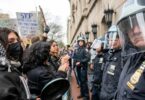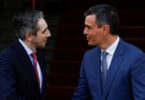Bradley K. Martin
If some recent accounts are true and Kim Jong Un is brain dead, who is likely to be the successor?
Most analysts have pointed to his younger sister, Kim Yo Jong – but usually with the caveat that the dynastic Kim regime is highly male-chauvinistic and it would be a stretch for her to become more than ruler in name.
There is another name that’s mentioned by Chinese – who tend to be closer to the Kim regime than officials of other countries.
Kim Pyong Il is a younger half-brother of Kim Jong Un’s late father, Kim Jong Il, the dynasty’s second supreme ruler.
Jong Il and Pyong Il had been rivals to take over from their father, founding ruler Kim Il Sung. Both sons displayed the strong desire to rule – in US political slang, “fire in the belly” – that is an essential quality for anyone who would be king or president.
Kim Jong Il won out and Kim Pyong Il was exiled to a long career of filling ambassadorial posts in central Europe. At age 65 he retired in November and returned to Pyongyang. Perhaps he’s available – conceivably even chafing at the bit like another old prince, Charles of the UK? – to receive the crown.
Dead or alive?
Before exploring that, let’s go back to the question of whether Kim Jong Un lives or – as unconfirmed reports and rumors have it – is clinically dead.
Japanese popular weekly magazine Shukan Gendai, attributing the claim to a single member of a Chinese medical team, reports that Kim Jong Un clutched his chest and collapsed. Doctors recognized that he needed a stent, which involves inserting a tube into a blood vessel to remove a blockage:
“While Kim Jong Un was visiting a rural area, he collapsed all of a sudden clutching his hands to his chest. In a hurry, accompanying doctors performed a heart massage while rushing to a nearby emergency hospital. Meanwhile, they requested Beijing to dispatch doctors. Beijing sent a team of 50 medical experts with equipment on a special plane to Pyongyang.”
“Concerned that time would run out,” the magazine adds, “North Korean doctors decided to go ahead with a stent procedure. The doctor who performed the procedure was a North Korean heart surgeon with long experience studying and working in China.
“This normally is not such a difficult procedure. It usually takes about one minute to insert a stent into the right and important spot. However, this doctor was extremely nervous and his hand was trembling. He had never worked on such an obese person.
“It took him about eight minutes to insert the stent. While he was struggling, Kim went into a vegetative state. Chinese doctors arrived and examined Kim, but there was nothing they could do.”
Although it must be emphazed that so far there’s no confirmation of those details, Reuters did report that Chinese experts had gone to North Korea to advise on Kim Jong Un.
“As far as I’ve heard, conditions are hopeless,” Francesco Sisci, a veteran East Asia correspondent with excellent contacts in China, told Asia Times. “But North Korea is extremely secretive. In the past it fabricated many fake stories and this may be true also now.”
Sisci, a longtime commentator on the pages of Asia Times, continued: “Having said that, I have reasons to believe that the situation in Pyongyang is extremely tense.”
He added, “It is not clear who has his or her fingers on the button for the missiles and the nuclear arsenal. China is very worried. Seventy years ago the Cold War started in the [Korean] peninsula.”
If, as he has heard, Kim Jong Un is dead or at least clinically dead, Sisci continued, “this demise occurs at a time when relations between the US and China are at a very low ebb and the situation in North Korea might be a fuse for a detonation.”
Asked when he thought an official announcement might come from Pyongyang, he replied: “Nobody knows. It could take days, but also months.” Regarding a successor, Sisci said that Kim Jong Un’s sister, Kim Yo Jong, “is the main candidate, but she is very young and she is a woman.”
Further complicating the Kim Jong Un health question is a report by 38 North, the North Korea-focused newsletter of Washington’s Stimson Center, of satellite sightings of what it’s analysts believe is Kim’s personal armored train parked at his Wonsan beach villa on the east coast.
That’s a long distance from mountainous Hyangsan county, north of Pyongyang in the western part of the country – which is where the original report of his poor health, published by the Seoul news organization Daily NK, said he had undergone “urgent” cardiovascular surgery in a special hospital for Kim family members and where it said he was recuperating in one of his villas.
At a time when accurate information is extremely hard to obtain, experts outside North Korea were concerned to note that Kim’s disappearance from public view had continued for a full two weeks, from April 11 when he was photographed presiding over a meeting of the North’s ruling Workers’ Party’s Political Bureau.
“Am I worried about Kim Jong Un right now?” tweeted Van Jackson, who was a security official in the administration of former US President Barack Obama.
“Yes, and I’ll spare you my keen observation that he’s fat, stressed and has every bad habit you could have except meth. I’m worried because North Korea isn’t prepared for him to kick the bucket and neither are we.”
Fire in the belly
Now, back to Kim Pyong Il, a name that will be unfamiliar to most readers. In the early 1970s the regime dropped a very clear offical hint that a close relative would become Kim Il Sung’s successor. The 1970 edition of North Korea’s Dictionary of Political Technologies had included this critical definition:
“Hereditary succession is a reactionary custom of exploitative societies whereby certain positions or riches may be legally inherited. Originally a product of slave societies, it was later adopted by feudal lords as a means to perpetuate dictatorial rule.”
That definition failed to appear in the 1972 edition of the dictionary.
Kim Il Sung’s second wife, Kim Song Ae, a typical traditional East Asian ruler’s wife focused on her progeny, devoutly hoped her own son Pyong Il would be the successor in due course and plotted to that end.
In the meantime she gave her support to an interim choice, Kim Il Sung’s brother Kim Yong Ju, whose reign, actuarial tables suggested, would be about long enough for her eldest to reach sufficient maturity. Kim Il Sung didn’t pick the brother, though.
According to high-level defector testimony, Kim Jong Il, whose own mother had died, grew up feeling slighted by his father’s attention to much younger half-brother Pyong Il, who looked like Kim Il Sung.
Kim Pyong Il studied English in Malta in the late 1960s, studied at the North Korean military academy and learned to fly light civilian aircraft at an airport in what was then communist East Germany.
A former East German official who knew him described him to me as “intelligent and well educated.” He knew life and he knew “regular Koreans.” He displayed the common touch.
Reports say he also studied in Moscow. Pyong Il is a Russian speaker, the former East German official said. He became a member of his father’s military bodyguard corps, as Kim Jong Il had done earlier. As a member of the ruling family, he rose quickly to the rank of colonel and was named vice head of the bodyguards’ strategic department.
Kim Pyong Il’s lifestyle, according to elite defector Kang Myong Do, came to befit that of a prince in waiting. His cronies included Kim Chang Ha, son of State Security Department head (chief spook) Kim Byong Ha, and Chon Wi, son of the head of bodyguards.
The young men often met at the Kim Byong Ha home and held frequent parties there. Kim Pyong Il’s custom was to hand out watches engraved with Kim Il Sung’s name as party favors to guests.
“He was very extravagant and generous and had lots of followers who flattered him by saying, ‘Long live Kim Pyong Il!’” Kang Myong Do recalled. “You weren’t supposed to say that about anyone but Kim Il Sung – it’s against the one-man rule system.”
Kim Jong Il, higher up in the hierarchy, was spying on Kim Pyong Il, Kang said, through Room 10 in the party headquarters, which had been established in 1978 to set up spy networks to catch any deviation from one-man rule. “He used this information and made a report to Kim Il Sung.”
The report angered the elder Kim, who fired Kim Pyong Il, Kang told me. Kim Pyong Il stayed in Pyongyang for a while but saw that few people dared to have anything to do with him. His influence with the powerful Korean People’s Army had evaporated. So he asked to be sent abroad.
In exile he was consigned to embassies far from the center of North Korean power. After a lesser diplomatic posting in Yugoslavia, he served in succession as ambassador to Hungary, Bulgaria, Finland, Poland and the Czech Republic.
Toward the end of Kim Il Sung’s lifetime, I was told by formerly high ranking people, the Great Leader was arguing with Kim Jong Il about various policy matters and was resentful that his designated successor had sidelined him, leaving him in lonely semi-retirement in a poorly maintained, rotting palace and ignoring his views. (By some reports it was right after one such argument that the elder Kim died of apoplexy.)
According to Japanese analyst Katsumi Sato, while the elder Kim was still alive the widow of a former Japanesese prime minister stopped in to visit him in Pyongyang and he told her that his continuing good health was thanks to the second son, Pyong Il. “He’s been helping me lately.”
I’ve seen no report that Pyong Il, after his father had died and his elder half brother had taken over formally with titles including “Dear Leader,” ever again did anything that would have qualified as rivalry.
He stayed quietly in whatever European capital he was assigned to, never speaking up publicly against Kim Jong Il, never being identified in any way with criticism of the North Korean system.
That’s quite a contrast to Kim Jong Nam, elder half brother of Kim Jong Un, whom Jong Un in 2017 had assassinated, in Malaysia. Jong Nam had made no secret of his view that North Korea was on the wrong trajectory.
It’s a contrast also to Jang Song Taek, the uncle whom Kim Jong Un put to death in 2013 for plotting against him, among other alleged offenses. Jang was known abroad to be a frustrated advocate of moving more toward Chinese-style economic development. He was also corrupt. For his habit of demanding a cut out of any foreign contract he was known as “North Korea’s Mr. 10%.”
But the fact that Kim Pyong Il didn’t pipe up or cause trouble during all those decades of exile doesn’t necessarily mean the fire in his belly was extinguished.
Whether he has continued to watch and await his chance we don’t know, but the reports that interested Chinese are viewing him as a possible successor are suggestive.






